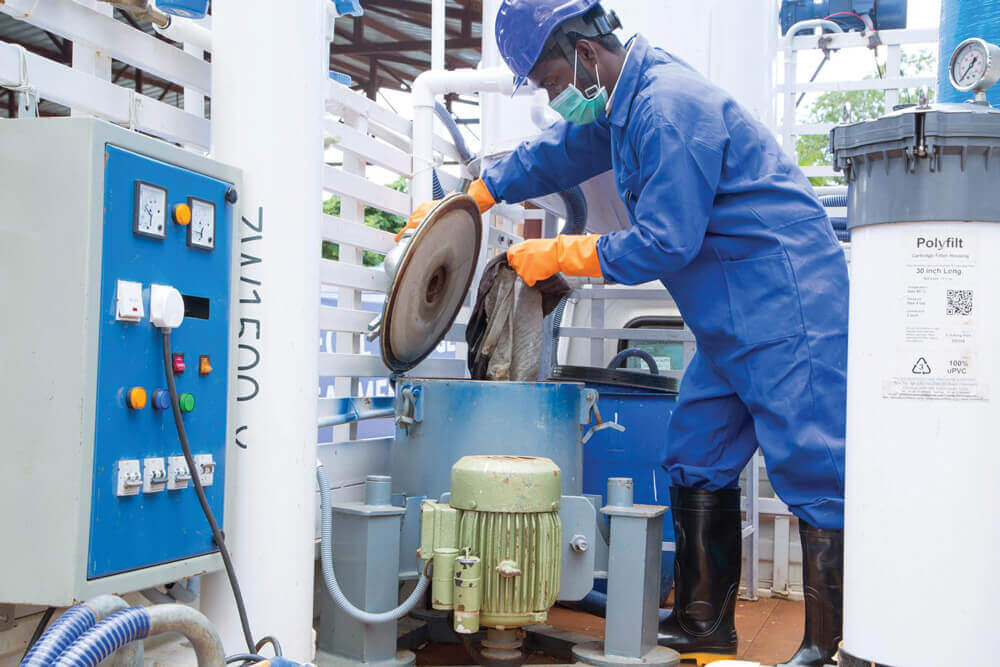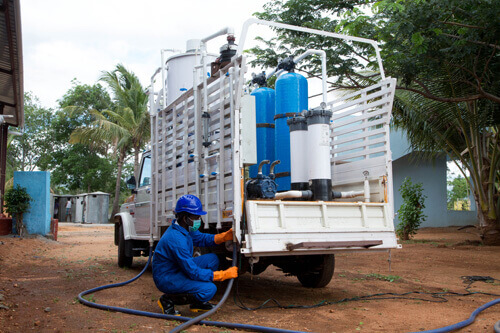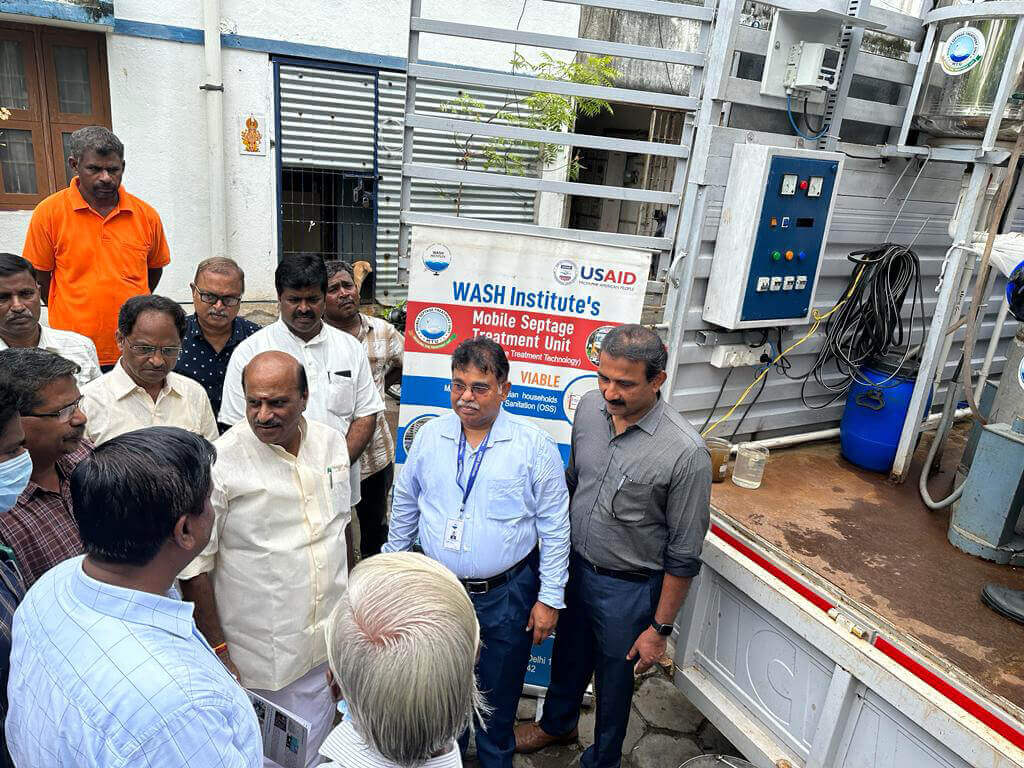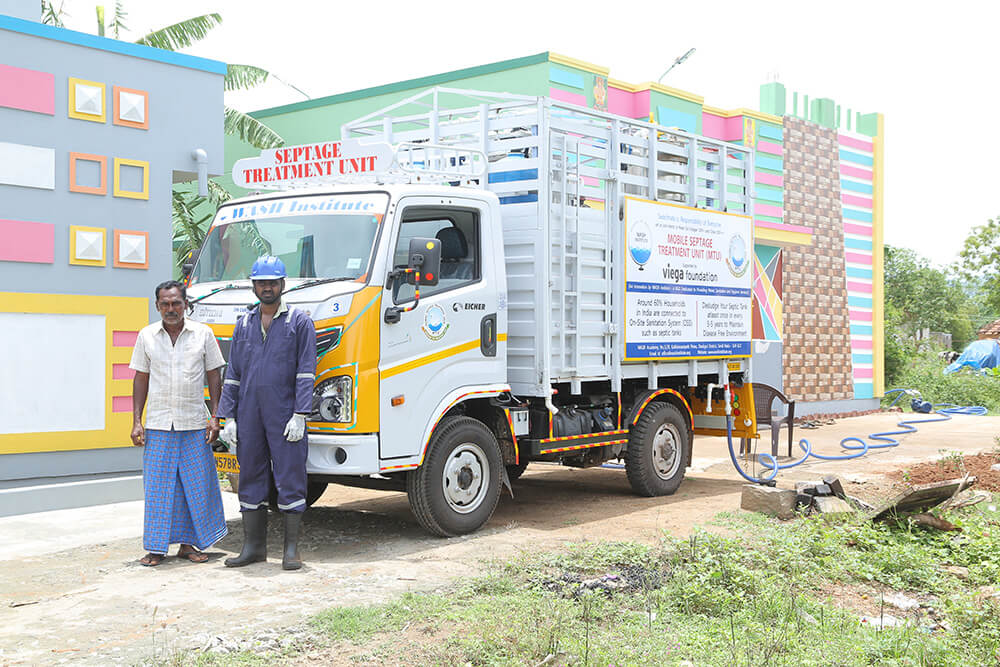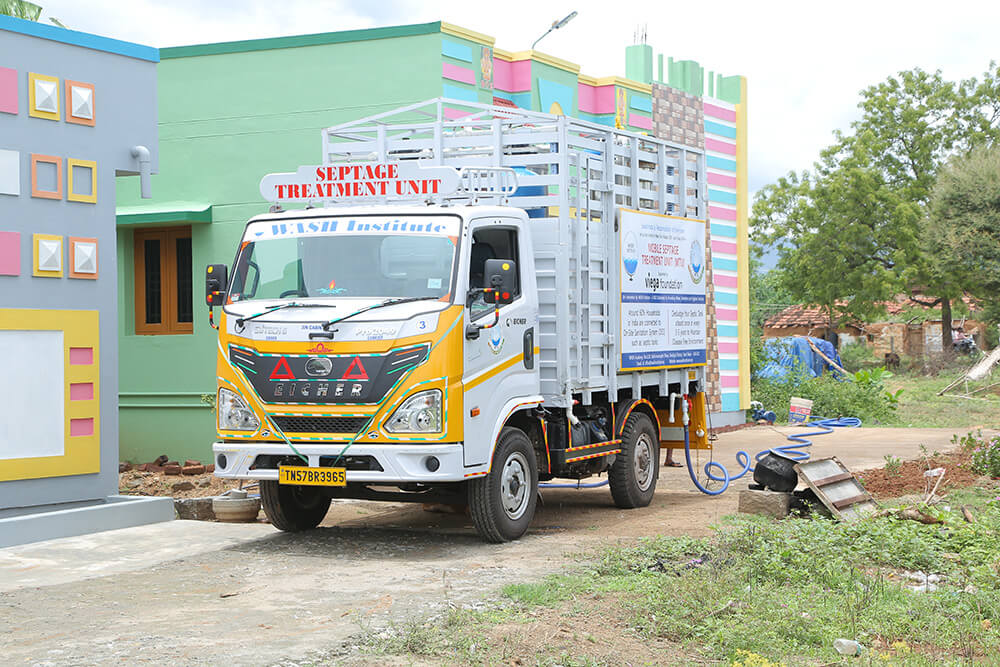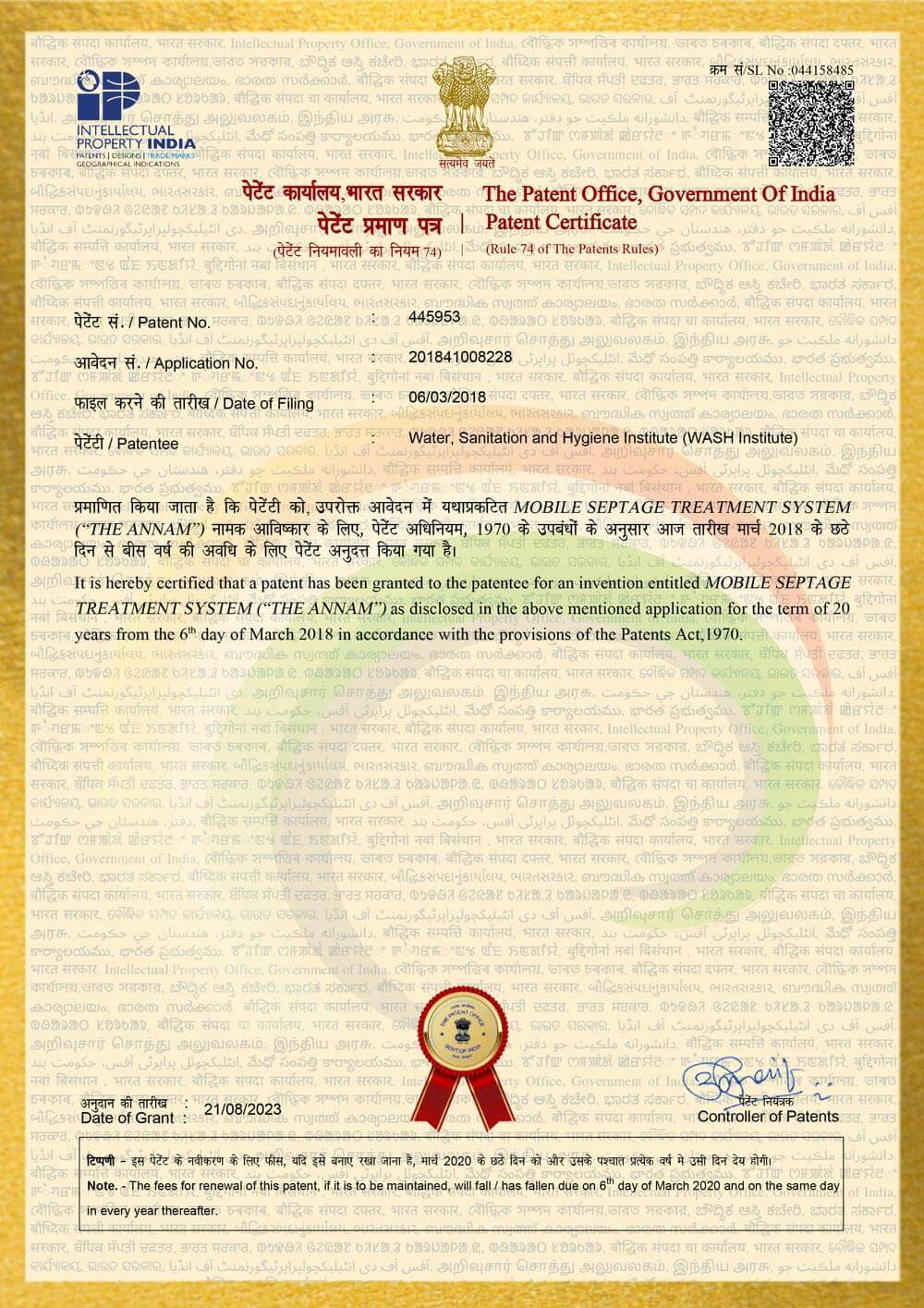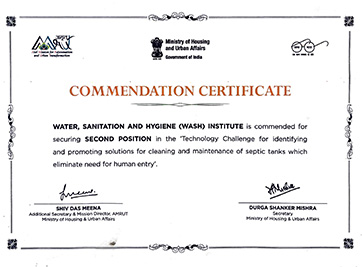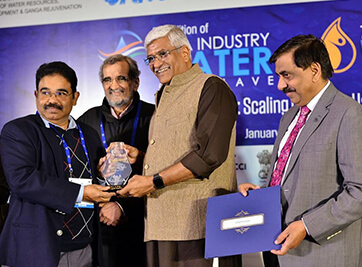Field Testing & Evaluation Study of MTU by Duke International
Field Testing & Evaluation study of MTU was carried out by Duke University in 2018. The main components of the detailed study included treatment effectiveness & discharge levels, lifespan, cost & efficiency of the MTU.
Field Testing & Evaluation Study of MTU by BITS Pilani
MTU field testing evaluation study was conducted by BITS Pilani in Goa for 60 septic tanks over a period of 4 months in 2021. The main objectives of the study were (1) Field testing the MTU solid liquid separator of faecal sludge from septic tanks (2) to characterize the effluent post MTU operation for safe disposal and (3) to quantify the sludge separated post MTU operation.
MTU Evaluation by Principal Scientific Advisor, Government of India
MTU has been vetted and approved by a technical committee chaired by the
Principal Scientific Adviser, Government of India. MTU is listed on Jal Jeevan Mission website under PSA approved projects. "See Item B3 in website linked below."










